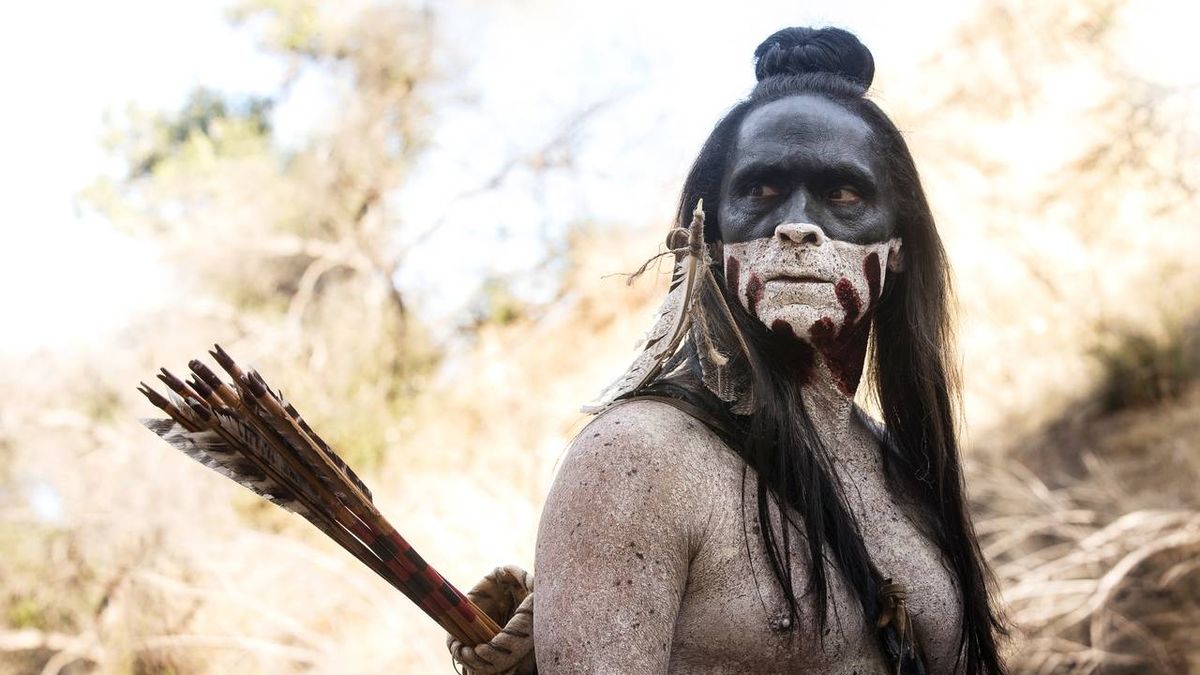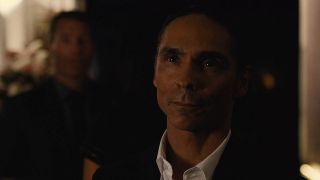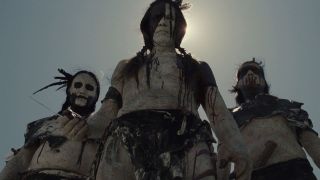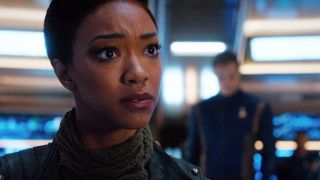The Akecheta Westworld episode proves the show doesn't need twists to keep it entertaining... just new voices
Fantastic TV, but so much more than that

Westworld season 2, episode 8 is one of the most stunning pieces of television I’ve seen in a long, long time. Up there with some of the great episodes in an era filled with classics as far as the eye can see, Kiksuya changed the game when it came to Westworld season 2, and may have changed the landscape for many more shows beyond that. It’s proof that television’s old habits of twists and turns are no longer sustainable, and that new points-of-view are the way forward for the medium.
Directed by Uta Briesewitz, co-written by Carly Wray, and starring Native American actor Zahn McClarnon along with a whole host of other Native American actors, the show already embraces a fresh way of thinking, but it was the way it unfolded in which it was truly revolutionary.
There’s a moment early on in the episode where McClarnon’s character, Akecheta, zeroes in on Maeve’s daughter. We have been trained to believe from the show – and culture in general – that the savage spells bad news; here, it does not. Something exceptional happens, instead: Akecheta tells a story. He has a voice. It is so powerful seeing the show choose to forgo its traditional sci-fi roots in favour of being able to sit down for an hour listening to a tale of an outsider of both the genre and the world-at-large.

What follows is a slow, poetic unfolding of a voice long rendered silent by the show’s creators and, as much as we’d hate to admit it, the viewers too. You’d be lying to yourself if you hadn’t written off the Ghost Nation as stock bad guys or, worse yet, unintelligible savages. Here we find that, beyond Bernard and company, there is someone who already has all the answers – we just hadn’t thought to ask him the questions.
But what does this do for Westworld? This is a show that has hung its hat on keeping us on the edge of our seat when it comes to unresolved mysteries and, yet, here is a diversity-led narrative supplanting the most tired of old television tropes: the cliffhanger.
So often have shows operated on a platform of this narrative sleight of hand as a get-out-of-jail free card to negate everything in the episode bar the last 45 seconds, that we’re now disappointed when we don’t get some sort of teasing thread to pull going into next week. Kiksuya took the opposite approach and simply cut all the threads. And I don’t think Westworld will ever be the same show again.

After this, you can’t go back. Returning to the same old narrative stylings will be tantamount to the show spinning its wheels in the hopes of some Grand Answer (as it has done for much of the season). Kiksuya propelled the show forward into uncharted territory where next week doesn’t matter nearly as much as looking back on this week, and contemplating what just went down. How many other shows can you think of that doesn’t rely heavily on next week, next week, next week? It’s a cycle that Akecheta almost single-handedly broke.
Sign up for the Total Film Newsletter
Bringing all the latest movie news, features, and reviews to your inbox
However, if it does continue down its old path, it’s wholly failed as a narrative concept because Akecheta’s story will become the anomaly and, again, reduced to the fringes of a show, a mere footnote, in which he lay in silence for much of the first and second seasons.
Do I have faith on Jonathan Nolan and Lisa Joy to incorporate Akecheta’s story into the grand narrative that’s being weaved around Ford? Not quite. In fact, Ford’s conversation with Akecheta – an old, white man literally explaining to a minority that this world is his was a bit on the nose, but it works – was worrisome insomuch as that you could almost hear the rug being pulled out from under Akecheta’s feet. The show is still far too concerned with grand designs of AI headfuckery and what it means to be a Host and not what it means to be someone without a voice. But, still, it’s a promising detour – and one that serialised shows should (and easily could) incorporate far more often.
Think of the great episodes of telly: The Suitcase (Mad Men), Ozymandias (Breaking Bad), Long Term Parking (The Sopranos): they often draw viewers in with the promise of a typical premise – man saves the day – and then destroy that notion, leaving you wondering what can possibly come after, if anything. It’s impossibly brave to pull off such a feat, but it’s one that Westworld is on the verge of doing. But it can’t stop there.
I want Westworld to occasionally ditch Dolores; I want Westworld to do away with Ford, Bernard, Charlotte Hale’s tiresome subplot and all the rest of it for just a little while. Nothing has quite compelled and excited me like the dunes unfolding out over the landscape as Akecheta’s final destination, his love, was in sight and then pulled away from him, the camera lingering on every little action and hesitant emotion that creeps out of the Ghost Nation leader. We saw more growth from Akecheta in one hour than we have in entire seasons of other shows, Westworld included. I want more of that. I want a Westworld that’s content with taking a breath and telling a complete story with a beginning, middle, and end – all in one sitting. If that happens to crossover with bringing a voice to the voiceless, then that’ll suit me just fine.
I'm the Senior Entertainment Writer here at 12DOVE, focusing on news, features, and interviews with some of the biggest names in film and TV. On-site, you'll find me marveling at Marvel and providing analysis and room temperature takes on the newest films, Star Wars and, of course, anime. Outside of GR, I love getting lost in a good 100-hour JRPG, Warzone, and kicking back on the (virtual) field with Football Manager. My work has also been featured in OPM, FourFourTwo, and Game Revolution.

